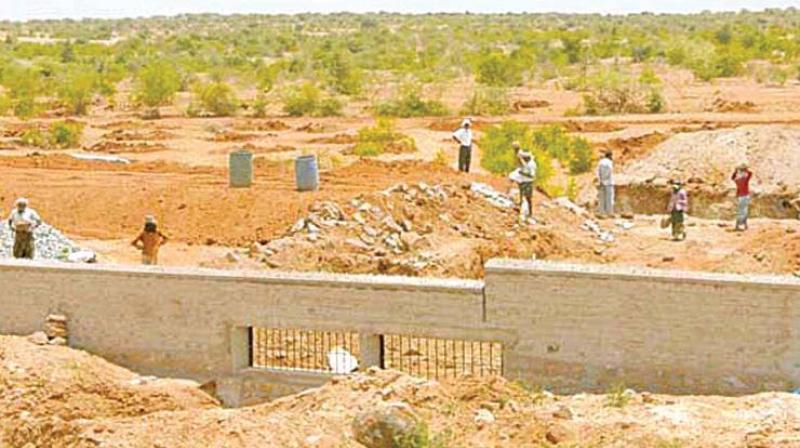Centre, Karnataka governments assign grasslands to institutions, villagers fume

Bengaluru: In 2009, the state and the Central governments had allocated 10,000 acres of Amrit Mahal Kaval grazing land at Challakere for the military, industrial, scientific and nuclear purposes.
It has been a decade since and the villagers allege that the promises of job made by these institutions have not been fulfilled. They claim they are threatened when they take their cattle for grazing.
Hanumantharaya, Amrit Mahal Kaval Hitarakshana Horata Samithi said, “We are suffering because of the diversion of the lands. No promises of the job being offered to the villagers have been fulfilled. Only three to five people have been hired as security guards by the ISRO.”
He further added that Defence Research Development Organisation (DRDO) had started its operations a year ago and the authorities say that they cannot do anything since the issue is related to national security.
More than three lakh villagers depended on the grasslands for their livelihoods and with the diversion of grasslands which according to the villagers was secretly done, there is rampant unemployment in the area.
The National Green Tribunal in 2013 gave a ruling asking the institutions- DRDO, IISc, ISRO and Bhabha Atomic Research Centre (BARC) to obtain environmental clearances.
It also decided to restore cultural and economic rights of the pastoral community that suffered due to the transfer of the lands.
Leo Saldanha, founder of Environment Support Group said that the institutions have not obtained the necessary permissions and he explained that the transfer of such large tract of land was nothing but hoarding.
“BARC is using only 10% and DRDO 5% of the land given to them. There is absolutely no need for them to keep huge tracts of land which they are not even using. People are literally suffering there,” Saldanha added.
The region is already facing the problem of receding water level and scarcity, and the NGT noted that the area is one of the critical components of the floral diversity, hence it is pertinent for the government to take stock of the situation.

